Ramadan is always a make or break for your yearly progress; it can be a huge boost or destructive chaos. It’s the time of the year that you say, “Here comes Ramadan, I will take this month off and start over later”. Then when Ramadan is over, we have Eid and so on.
I can assure you – you will never get anywhere with that mentality. This is life. There will always be bumps in your way. You will never get a good streak of six months, you make it. Ramadan or not, you have to adapt to each situation you’re put in to succeed.
So, if you’re willing to give up on your goal just because your family will pressure you into eating, just scratch that goal off your list and find another hobby.
Now you’re wondering what I’m up to. “Does he think we’ll eat broccoli in Ramadan?!” I say hell no. Today, I will discuss how Ramadan is actually good for dieting and the two approaches that I will be personally adopting for nutrition in Ramadan.
Ramadan’s benefits for fat loss
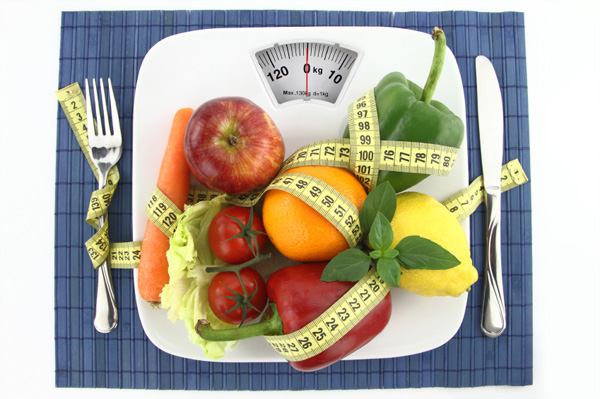
Metabolism: When you fast for 15+ hours, your metabolic rate and growth hormone release are increased.
Don’t worry about not eating six meals a day. Your body works on a large time frame (a week not a day), so eating six meals a day isn’t the key here. Eating and training religiously (pun intended) overall is what makes your metabolism burn like a furnace.
Fat Burning: As the duration of the fast goes by, an increase in fatty acid oxidation occurs.
Appetite: Due to being restricted from eating or drinking, your appetite is controlled and trapped into a 6-7 hours feeding window. Therefore, you’re less vulnerable to unnecessary snacking and binging.
Reduced Oxidants: Oxidants damage your cells. Fasting reduces their functionality, so less diseases.
Eating Approach
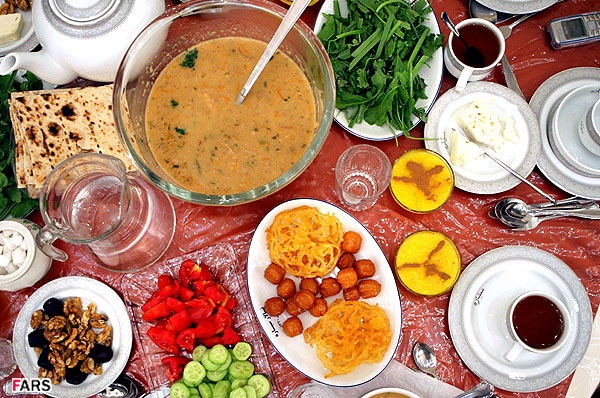
Now, here comes the challenge. When it’s time to break your fast, here are the two approaches:
Eating Out (Second Best Option):
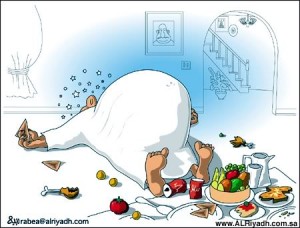 I know in Ramadan you will be invited to 72 family/friends gatherings per day where there will be an array of heavenly food that you’d only be stupid to pass on. But then what? You’ll probably also pass on going to Sahel or wherever in Eid because you look like a lady pregnant with triplets. Here’s what I recommend to prevent this from happening:
I know in Ramadan you will be invited to 72 family/friends gatherings per day where there will be an array of heavenly food that you’d only be stupid to pass on. But then what? You’ll probably also pass on going to Sahel or wherever in Eid because you look like a lady pregnant with triplets. Here’s what I recommend to prevent this from happening:
Eat whatever you want as long as what you eat won’t ruin you caloric deficit (if you want to lose fat) or exceed your caloric limit (if you want to maintain). How can you do that? It’s simple, really. Instead of binging on nine Sambousak, a barrel of soup, one kilo of French fries, half a kilo of Bashamel, 29 Chicken Panee and a dessert that contains Basboosa and Konafa – not to mention double that in Suhoor, here’s what you can do:
You can eat all that I previously mentioned and still lose/maintain your weight. The key is here is moderation. When it comes to fat loss, the food’s quality can be compromised to make the process easier. The most important issue is the quantity and not to exceed your calories.
I bet you have that person in your life who says, “I don’t get fat in Ramadan, I actually lose weight”, and they were never on a diet. They’re just eating what they want, but in moderation. In my opinion, eating a medium portion for Iftar with a small dessert and another smaller meal in Suhoor will keep you full and won’t keep you from reaching your goals. Spend your calories wisely.
At Home (Best Option):
Surely the food at home in Ramadan isn’t that different than the food at gatherings, so do the same as what I explained above. But, if you are an obsessed maniac who always wants to see results like me, force whomever is cooking to prepare you healthy food daily.
This approach is more efficient than the other, as healthy food is way more controllable than what you eat in gatherings, since you will be able to count your calories accurately, not just roughly.
Training
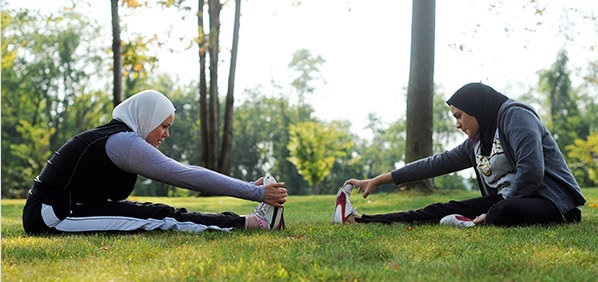
In order to maximize the benefits I mentioned above, you have to train in Ramadan. The best time would be the two-hour window before Iftar. However, if you normally have low blood pressure or any other condition that requires you to eat before working out, avoid training before Iftar.
If you believe muscles loss is inevitable with the lack of protein supply throughout the day, don’t worry! Just make sure you consume your required protein intake during the feeding hours and don’t stop working out.
Hydration
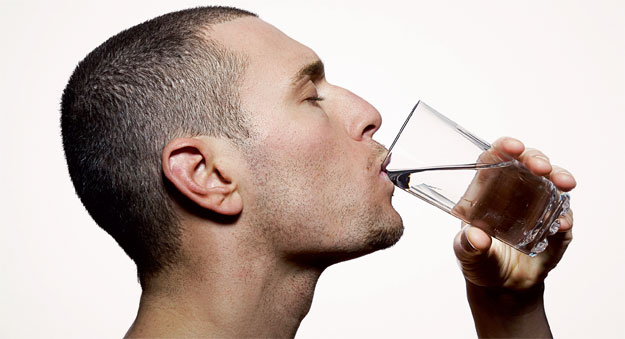
Hydration is extremely important – so important that I had to mention it alone. After all these hours of fasting, every cell in your body will be crying for water to function properly. So, you have to drink water as soon as possible until you go to sleep.
Bottom Line
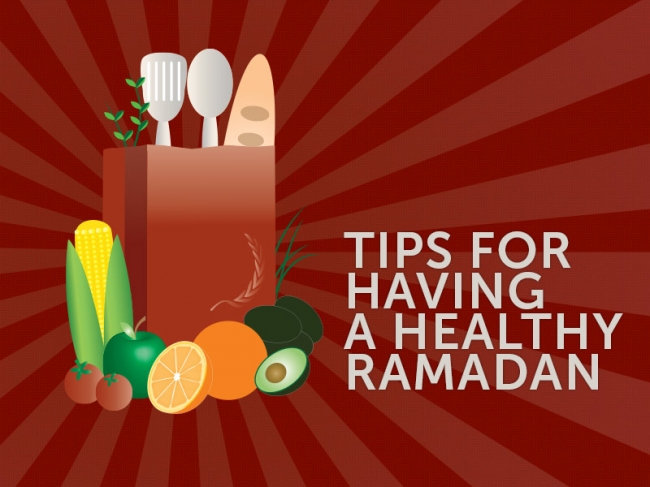
1. When you’re eating “unhealthy” food, eat in moderation and you will still lose/maintain your weight.
2. Drink water like it’s your job when you’re allowed to. You have to stay hydrated from the moment Iftar begins till you sleep to replenish your body after fasting. Highly important!
3. Never cut out your exercise routine. I recommend exercising right before Iftar to maximize the benefits. Besides, after Iftar you’ll probably have other plans and you will be forced to skip training. But then, it’s up to you. See what fits your day, whether it is before or after you break fast.
4. If you’re looking to maintain your muscle mass and maximize fat loss, make sure you get an adequate amount of protein.
5. Suhoor isn’t the devil. Just adjust its quantity considering what you ate at Iftar.
6. Plan your meals ahead. There are several mobile apps and websites that you can use to easily calculate what to eat, so as not to exceed your calories (try MyFitnessPal). Again, plan ahead!
7. If you managed to eat at a deficit for six days, don’t forget your cheat meal!
8. Most people are discouraged from dieting in Ramadan as they believe their metabolism will crash due to fasting, so they just go crazy eating every bit of Basboosa on the planet. I’d like to quash that myth. Several fitness models adopt a nutrition style similar to Ramadan fasting, called Intermittent Fasting (IF).
9. Don’t use Ramadan as an excuse to give up. And yes, a month of commitment can do a good amount of change to your body.
10. It isn’t easy, I know. But, think of it this way: You have to change what you always do to get different results. As I said before, there will always be obstacles. Be prepared. Diet once now instead of constantly giving up and starting over because you’re weaker than the conditions.
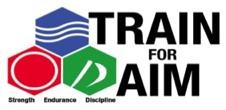
If you want your personalized Ramadan meal plan, please email info@trainforaim.com, or call me at 012-7373-7777.
WE SAID THIS: Ramadan Kareem from the Empire!


